
This review article written by Danielle Gentile, PhD, et al, reviews the management of cancer-related fatigue in integrative oncology.

Your AI-Trained Oncology Knowledge Connection!


This review article written by Danielle Gentile, PhD, et al, reviews the management of cancer-related fatigue in integrative oncology.

David M. O’Malley, MD, spoke about where the future of treatment is heading for patients with endometrial cancer.

A panel of experts in stem cell transplant and cellular immunotherapy builds a lively discussion on current and emerging treatment options for the management of acute and chronic graft versus host disease.

The phase 3 ACHIEVE trial analyzed Asian patients with stage III colon cancer to determine how a 3-month treatment duration with capecitabine and oxaliplatin compared with 6 months.

Alina Markova, MD, discusses the rationale for assessing topical ruxolitinib INCB018424 phosphate 1.5% cream in patients with non-sclerotic and superficially sclerotic chronic cutaneous graft-versus-host disease.

Leukemia survivors who were adolescents or young adults had worse long-term survival outcomes vs the general population.
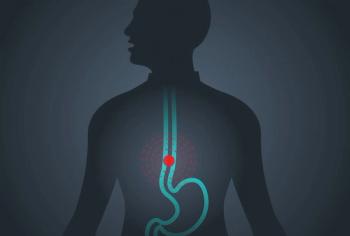
Although patients with stage I esophageal cancer who received early surgery had similar survival vs delayed surgery, those with stage II and III disease experienced improved outcomes.

Sunita D. Nasta, MD, gives her perspective on emerging treatments for peripheral T-cell lymphomas.

This review article written by Robert Stuver, MD, et al, reviews current and available treatments for peripheral T-cell lymphoma.

Data from a large-scale population-based case control study indicated that excessive weight could have a notably higher odds ratio of CRC risk than previously identified in epidemiologic studies.

Patients with node-positive breast cancer did not have a significant improvement in disease-free survival with the addition of internal mammary node irradiation to regional nodal irradiation; however, patients with medically or centrally located tumors could benefit.
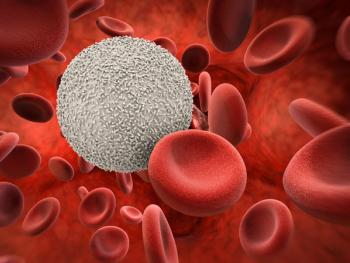
Patients with relapsed/refractory B-cell non-Hodgkin lymphoma who experienced grade 3 or higher immune effector cell–associated neurotoxicity syndrome who were treated with early intrathecal therapy experienced improved survival.

Real-world practice patterns with bevacizumab for patients with ovarian cancer differed greatly from published clinical trial data.

In an OncView™ program, Lori Wirth, MD, shared her insights into the current treatment of patients with differentiated thyroid cancer.

Stereotactic body radiotherapy plus pembrolizumab and trametinib could potentially become a novel treatment strategy for patients with locally recurrent pancreatic cancer following surgery.

Patients with treatment-naïve chronic lymphocytic leukemia with the presence of deletion 17p who received treatment with ibrutinib in the first line were more likely to have poor survival and to discontinue treatment due to progression vs those without.

The primary end point of progression-free survival was not met in the phase 3 SKYSCRAPER-1 trial assessing tiragolumab plus atezolizumab for patients with PD-L1–high locally advanced or metastatic non–small cell lung cancer.
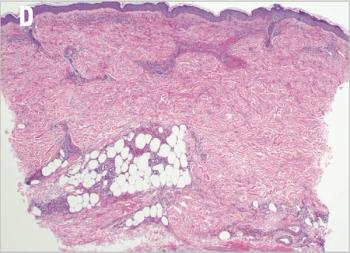
In this installment of Clinical Quandaries, Justine Panian, BS, and colleagues present a case of a 60-year-old Mexican woman with fevers, abdominal pain, and hypertension.

Uday R. Popat, MD, spoke about the decision to use post-transplant cyclophosphamide vs tacrolimus plus methotrexate to prevent graft-vs-host disease.

Alina Markova, MD, highlights important findings from a study assessing topical ruxolitinib INCB018424 phosphate 1.5% cream as a treatment for non-sclerotic and superficially sclerotic chronic cutaneous graft-versus-host disease.

Investigators believe that molecular classification could be a predictor of survival in patients with recurrent endometrial cancer.

Patients with advanced human papillomavirus 16–positive cervical cancer appear to benefit from treatment with VB10.16 and atezolizumab.

In an interview with ONCOLOGY®, Megan May, PharmD, BCOP, offers a comprehensive review of real-world treatment considerations of dostarlimab as therapy for adult patients with recurrent or advanced solid tumors with deficient mismatch repair.
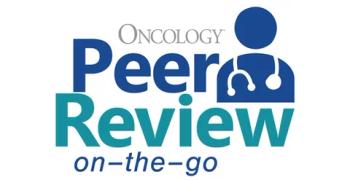
Tanios Bekaii-Saab, MD, sits with Kristen Ciombor, MD, MSCI, and John Strickler, MD, to examine the COLOMATE platform for patients with colorectal cancer.
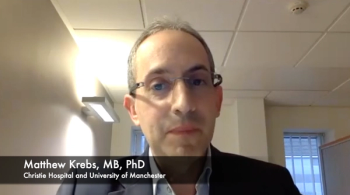
Matthew Krebs, MB, PhD, spoke about how subcutaneous amivantamab can best be utilized in future clinical trials.

Investigators identified that in pivotal clinical trials supporting FDA approvals of CAR T-cell therapies for patients with hematologic cancer, Black patients were significantly underrepresented.

Despite having a good rate of treatment adherence, patients who are diagnosed with high-risk stage III colorectal cancer at a younger age may have higher rates of relapse.
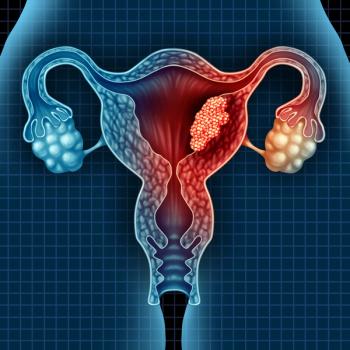
The phase 1/2 SPARTACUS trial assessed the use of stereotactic hypofractionated radiation therapy in patients with uterine cancer; the treatment appeared to be well tolerated.
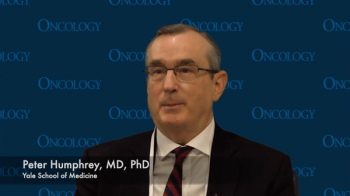
At the 15th Annual Interdisciplinary Prostate Cancer Congress® and Other Genitourinary Malignancies, Peter Humphrey, MD, PhD, spoke about the role of pathology in renal cell carcinoma.

By reading CT scans, machine learning could aid investigators in improving treatment decision making.